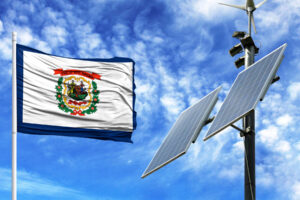WV smooths the path for on-site solar energy facilities
 The West Virginia Legislature has passed a bill that will make it easier for retail electric customers to establish on-site solar energy facilities. Sponsored by Babst Calland Shareholder and House Judiciary Chairman Moore Capito, House Bill 3310 states that solar energy facilities designed to power only the premises where they are located are exempt from the jurisdiction of the West Virginia Public Service Commission under certain conditions. This means that the PSC is not involved in regulating the rates and other aspects of qualifying solar facilities. To be exempt, power generated from such a facility must be subject to a “power purchase agreement” with the retail electric customer. A PPA generally governs the design, permitting, financing, and installation of a solar facility at a retail electric customer’s location by a solar energy developer. Under a PPA, a retail customer purchases the power generated by the facility at an agreed upon rate. In addition to receiving revenue generated from the energy produced, the developer is also eligible for renewable energy tax credits. The bill is intended to promote solar installations at residences, small businesses, and industrial sites by allowing third-party developers to design and finance the installation of solar panels and then sell the electricity generated to the consumer.
The West Virginia Legislature has passed a bill that will make it easier for retail electric customers to establish on-site solar energy facilities. Sponsored by Babst Calland Shareholder and House Judiciary Chairman Moore Capito, House Bill 3310 states that solar energy facilities designed to power only the premises where they are located are exempt from the jurisdiction of the West Virginia Public Service Commission under certain conditions. This means that the PSC is not involved in regulating the rates and other aspects of qualifying solar facilities. To be exempt, power generated from such a facility must be subject to a “power purchase agreement” with the retail electric customer. A PPA generally governs the design, permitting, financing, and installation of a solar facility at a retail electric customer’s location by a solar energy developer. Under a PPA, a retail customer purchases the power generated by the facility at an agreed upon rate. In addition to receiving revenue generated from the energy produced, the developer is also eligible for renewable energy tax credits. The bill is intended to promote solar installations at residences, small businesses, and industrial sites by allowing third-party developers to design and finance the installation of solar panels and then sell the electricity generated to the consumer.
To be exempt from PSC jurisdiction, an on-site solar facility must be “located on and designed to meet only the electrical needs of the premises of a retail electric customer” and be designed not to exceed certain generation limits: 25 kilowatts for residential customers; 500 kilowatts for commercial customers; and 2,000 kilowatts for industrial customers. The legislation also establishes a cap on the aggregate amount of exempt on-site solar energy generation within West Virginia. The total of all solar PPAs and net metering arrangements cannot exceed 3% of an electric utility’s aggregate customer peak demand in the state during the previous year. Under a net metering arrangement, a retail customer who generates more power through an on-site solar facility than the customer uses will receive a credit for the excess power that is sent out to the grid rather than consumed.
Before entering into a PPA for an on-site solar facility, a retail customer must notify the electric utility. If the electric utility does not notify the customer within 30 days that a cap has already been reached, the customer may proceed with the project.
If you have any questions about House Bill 3310 or solar development in West Virginia, please contact Robert M. Stonestreet (681.265.2117; rstonestreet@babstcalland.com) or Moore Capito (681.205.8953; mcapito@babstcalland.com)